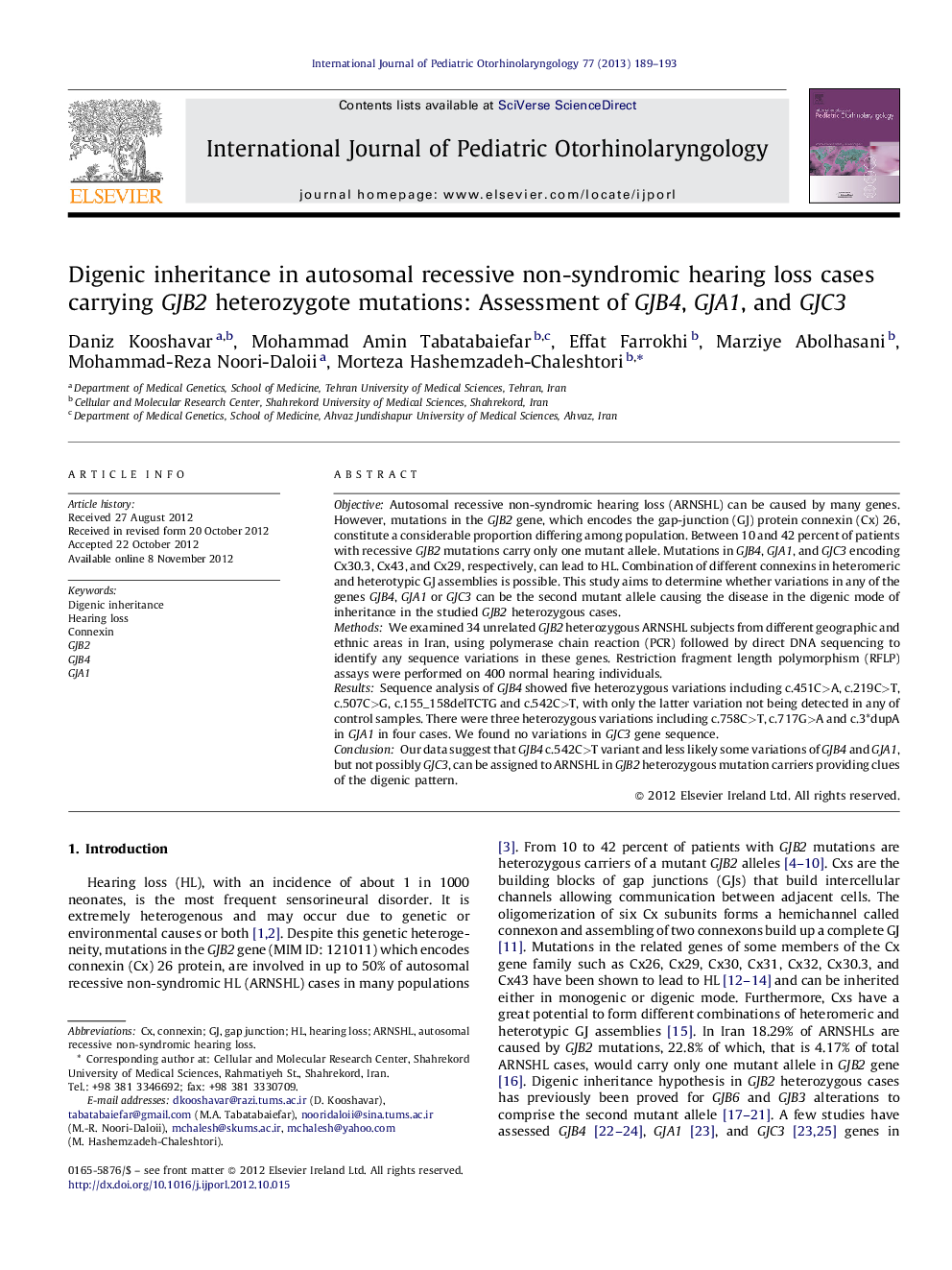| Article ID | Journal | Published Year | Pages | File Type |
|---|---|---|---|---|
| 4113184 | International Journal of Pediatric Otorhinolaryngology | 2013 | 5 Pages |
ObjectiveAutosomal recessive non-syndromic hearing loss (ARNSHL) can be caused by many genes. However, mutations in the GJB2 gene, which encodes the gap-junction (GJ) protein connexin (Cx) 26, constitute a considerable proportion differing among population. Between 10 and 42 percent of patients with recessive GJB2 mutations carry only one mutant allele. Mutations in GJB4, GJA1, and GJC3 encoding Cx30.3, Cx43, and Cx29, respectively, can lead to HL. Combination of different connexins in heteromeric and heterotypic GJ assemblies is possible. This study aims to determine whether variations in any of the genes GJB4, GJA1 or GJC3 can be the second mutant allele causing the disease in the digenic mode of inheritance in the studied GJB2 heterozygous cases.MethodsWe examined 34 unrelated GJB2 heterozygous ARNSHL subjects from different geographic and ethnic areas in Iran, using polymerase chain reaction (PCR) followed by direct DNA sequencing to identify any sequence variations in these genes. Restriction fragment length polymorphism (RFLP) assays were performed on 400 normal hearing individuals.ResultsSequence analysis of GJB4 showed five heterozygous variations including c.451C>A, c.219C>T, c.507C>G, c.155_158delTCTG and c.542C>T, with only the latter variation not being detected in any of control samples. There were three heterozygous variations including c.758C>T, c.717G>A and c.3*dupA in GJA1 in four cases. We found no variations in GJC3 gene sequence.ConclusionOur data suggest that GJB4 c.542C>T variant and less likely some variations of GJB4 and GJA1, but not possibly GJC3, can be assigned to ARNSHL in GJB2 heterozygous mutation carriers providing clues of the digenic pattern.
